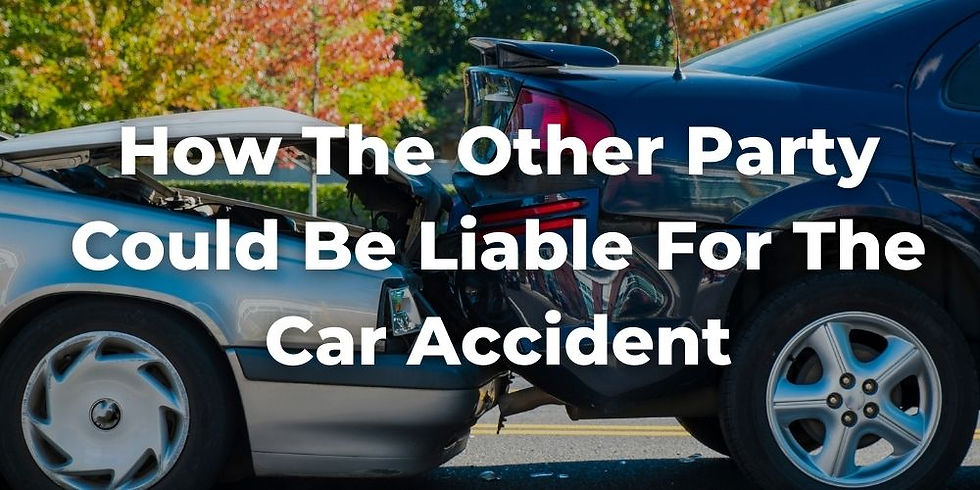Who Is Liable, Owner Or Driver?
- Kenneth Powell

- Nov 24, 2021
- 3 min read
One of the most common tickets that people receive is careless driving. It is also one of the most difficult tickets to fight. The reason most people never fight tickets is that they don’t know how and the average person doesn’t want to spend the money to fight it. Being an owner or driver of a vehicle is no easy task. Not only are you responsible for what happens on the road, but you are also responsible for all maintenance, services, and repairs on your vehicle. That means you should always be ready should something go wrong. However, there are times when accidents occur, and sometimes, people are not at fault.
There are two kinds of liability in the law—one for the victim and one for the person responsible. The “one” responsible can be either the victim or the actual driver, who is the vehicle owner. Both the victim and the vehicle owner/driver should be responsible for their acts.
While the car owner’s insurance pays the majority of the coverage for an auto accident, if you are an owner or driver who is not covered by the car owner’s insurance, you are still financially responsible for any injuries or property damage that you cause to another person. When an accident occurs, it is always important to document any injuries or damages that you may have caused, even if the accident was not your fault. Some people believe that the owner of a car is responsible for any accidents that occur while his/her car is being rented out. However, that is not the case. First of all, any person that has permission to drive the car is not liable for any accidents that the car may cause. The only other person who may be held responsible for an accident, even if it is not his/her fault, is the borrower of the car.

What would be the liability?
For the car owner
Negligent entrustment refers to the concept of liability when a person is entrusted with the care, custody, or control of the property for another, and the person acts with a gross or willful disregard for the property’s condition. Intentional drivers are generally thought to be held liable for their actions in an automobile. This is because cars are inherently dangerous; they are essentially machines capable of engaging in autonomous, human-free traffic.
Owners of vehicles are not always aware of how other drivers may take advantage of their cars. If a person driving a car has a history of driving recklessly, they may be a danger to the public. When a driver has a history of driving under the influence or driving without a license, it is reasonable to assume that they would pose a danger to the public as well.

How the other Party Could Be Liable for the Car Accident
The majority of car accidents occur due to driver negligence, not the actions of the other driver. To be considered ‘negligent,’ one must act in a way that harms another person. If you are driving a car and hit someone, you may be held liable for the injuries the other person sustained. If you have been injured in a car accident, you may be able to hold the other driver responsible by filing a personal injury claim with a St Louis motorbike accident attorney.
You can find yourself in some serious trouble if you are hit by another driver who is drunk, is on drugs, or does not have sufficient insurance. If you can prove that the reversing driver is at fault for causing your car accident, then the court will require the driver to pay for your medical expenses, car repairs, and lost income. Additionally, the driver may be required to pay you money in cash or with a cash-like security deposit. Any money that is not recovered due to the driver’s failure to pay the required amount will be paid by the state’s insurance fund.

Comments